Search for academic programs, residence, tours and events and more.

Continuing our leadership in sustainability, the Annual Sustainability Report provides an overview of Laurier's sustainability activities for the 2020/20 year. It has been two years since the publication of Wilfrid Laurier University's (Laurier) most recent Sustainability Action Plan, which outlines a five year strategy to take action on climate change and embed sustainability into every aspect of campus life.
The goal of the Annual Sustainability Report is to evaluate Laurier’s sustainability performance over the 2019/2020 academic year and provide an update on where Laurier stands with respect to achieving the goals and actions outlined in the Sustainability Action Plan. This evaluation allows us to take stock of the progress we’ve made towards our goals over the past two years. It also highlights areas that require more attention in the upcoming academic year.
The United Nation’s Sustainable Development Goals (SDGs) are used as a framework to ensure Laurier’s sustainability goals contribute to the progress of human well-being and ecological integrity on a global scale – the true embodiment of think globally, act locally.
The progress of the Sustainabilty Action Plan goals are illustrated using the graphics below:
 Not Started
Not Started
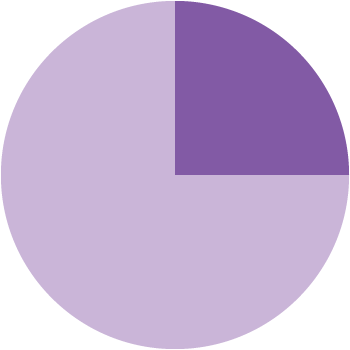 Started
Started
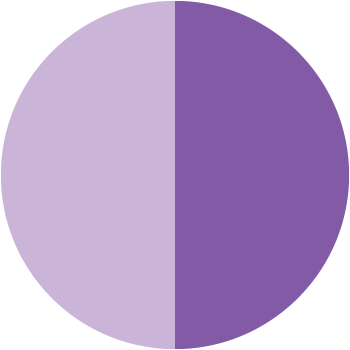 Somewhat Complete
Somewhat Complete
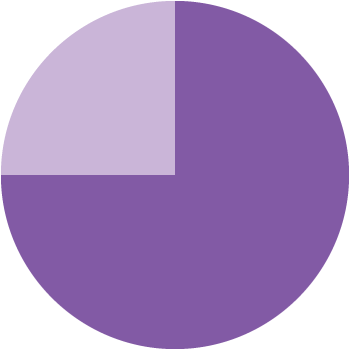 Mostly Complete/Ongoing
Mostly Complete/Ongoing
 Complete
Complete
During the 2019/2020 academic year, Laurier continued to be a sustainability leader in its sector. Highlights include:

Continue to reduce GHG emissions across Laurier campuses through the completion of the LEEP project, building a low carbon campus in Milton, and undertaking other projects as funding opportunities arise.
 Action 1: Create a Carbon Reduction Roadmap setting short-term, midterm and long-term GHG reduction targets and detailing the process of how targets will be achieved.
Action 1: Create a Carbon Reduction Roadmap setting short-term, midterm and long-term GHG reduction targets and detailing the process of how targets will be achieved.
 Action 2: Establish a senior committee of key Laurier stakeholders to participate in the development of a Carbon Reduction Roadmap.
Action 2: Establish a senior committee of key Laurier stakeholders to participate in the development of a Carbon Reduction Roadmap.
 Action 3: Establish mechanism for regular communication of carbon emissions to business units.
Action 3: Establish mechanism for regular communication of carbon emissions to business units.
 Action 4: Establish a portfolio of 'shovel ready' GHG reduction projects to be prepared for funding opportunities as they arise.
Action 4: Establish a portfolio of 'shovel ready' GHG reduction projects to be prepared for funding opportunities as they arise.
 The implementation of the Laurier Energy Efficiency Program (LEEP) continues on the Waterloo campus. In the summer of 2019, a green light was given to proceed with the next phase of LEEP, which includes the expansion of the Battery Energy Storage System (BESS) building to house a new 2 Megawatt power generator. The power generator and BESS are expected to be operational late in the summer of 2020. The BESS and generator systems will provide back-up power to the campus. It also means that the University can activate its power generation assets during high demand times in order to significantly reduce electricity costs, and reduce the Province’s GHG emissions. This GHG emissions savings is realized by limiting the need to operate less efficient natural gas plants and reducing distribution line losses by generating power closer to where it is consumed.
The implementation of the Laurier Energy Efficiency Program (LEEP) continues on the Waterloo campus. In the summer of 2019, a green light was given to proceed with the next phase of LEEP, which includes the expansion of the Battery Energy Storage System (BESS) building to house a new 2 Megawatt power generator. The power generator and BESS are expected to be operational late in the summer of 2020. The BESS and generator systems will provide back-up power to the campus. It also means that the University can activate its power generation assets during high demand times in order to significantly reduce electricity costs, and reduce the Province’s GHG emissions. This GHG emissions savings is realized by limiting the need to operate less efficient natural gas plants and reducing distribution line losses by generating power closer to where it is consumed.
The Laurier Sustainability Office has been working with Blackstone Energy Services Inc. to develop a Carbon Reduction Roadmap (“Roadmap”) for Laurier campuses. The document maps out the projects and actions required to achieve Laurier’s short, mid, and long-term GHG reduction targets of 15% by 2022, 40% by 2030, and net-zero campuses by 2050, respectively. Throughout the Roadmap's development process, numerous stakeholder consultations were held with members of the Laurier community to ensure their feedback was incorporated into the Roadmap. The Roadmap and associated emissions reduction goals were officially endorsed by Laurier’s Board of Governors in the Winter 2020 semester. The final Roadmap will be published during the summer of 2020.
Laurier’s annual emissions inventory shows that GHG emissions dropped by approximately 1.5% (or 150 tonnes CO2e) over 2019. This reduction is the result of numerous projects undertaken to improve energy efficiency and reduce energy consumption on our campuses. Laurier’s annual emissions trend for all campuses is shown in Figure 1. Overall, Laurier has reduced GHG emissions by approximately 11.7% based on 2009 levels. This is an important achievement given that Laurier has increased its’ building area by nearly 500,000 square feet since 2009. Part of this decrease can be attributed to Ontario’s elimination of all coal fired electricity generating stations in 2014 (replacing them with nuclear and hydro-electric generating stations). During this period, Laurier also reduced its water consumption by approximately 8.5% (or 15,361 cubic metres) – that’s enough water to fill more than 6 Olympic-size swimming pools.
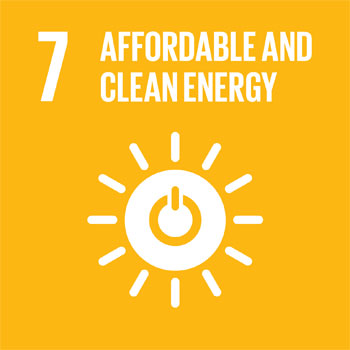
Improve energy and water conservation across campus and contribute to deferred maintenance.
 Action 1: Implement the Laurier Energy Efficiency Project (LEEP) across campuses.
Action 1: Implement the Laurier Energy Efficiency Project (LEEP) across campuses.
 Action 2: Create an Energy Management Plan that aligns with Carbon Reduction Roadmap GHG reduction targets.
Action 2: Create an Energy Management Plan that aligns with Carbon Reduction Roadmap GHG reduction targets.
 Action 3: Regularly measure and verify energy and water usage based on established protocols.
Action 3: Regularly measure and verify energy and water usage based on established protocols.
 Action 4: Develop building energy benchmarking capabilities and key performance indicators (KPIs).
Action 4: Develop building energy benchmarking capabilities and key performance indicators (KPIs).
 Action 5: Establish and implement capital planning design standards for new and existing energy and water consuming equipment/systems. Use checklists for ongoing verification of energy efficient operation of buildings and equipment.
Action 5: Establish and implement capital planning design standards for new and existing energy and water consuming equipment/systems. Use checklists for ongoing verification of energy efficient operation of buildings and equipment.
 Action 6: Realize energy savings through continued expansion of Building Automation System (BAS) technologies and retro-commissioning of existing building systems.
Action 6: Realize energy savings through continued expansion of Building Automation System (BAS) technologies and retro-commissioning of existing building systems.
Laurier published a new 5-year Energy Conservation and Demand Management (ECDM) Plan in August 2019. The ECDM Plan outlines Laurier’s 5-year strategy to improve energy conservation and reduce energy demand in buildings on campus and is aligned with Laurier’s new Carbon Reduction Roadmap.
An Energy Management Working Group comprised of members of the Sustainability Office; Planning, Design and Construction (PDC) team; Facilities, and Operations was formed in 2019. The mandate of the Working Group is to improve energy and water usage across Laurier’s campuses. It provides an enabling environment for open communications and collaboration on a regular basis to discuss matters related to Laurier’s Energy Management program.
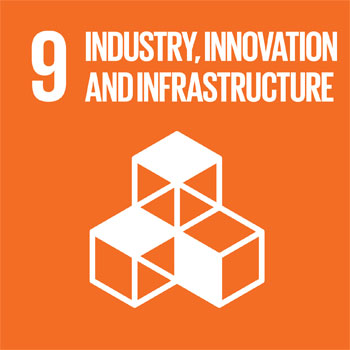
Increase sustainable transportation uptake by students, faculty and staff to reduce single occupancy vehicle use by 5%.
 Action 1: Fill gaps and expand service types such as an improved carpool program, bike share program, and electric vehicle charging station infrastructure across all our campuses.
Action 1: Fill gaps and expand service types such as an improved carpool program, bike share program, and electric vehicle charging station infrastructure across all our campuses.
 Action 2: Incentivize sustainable transportation options to encourage uptake through a variety of measures such as preferential EV parking and discounted carpool parking.
Action 2: Incentivize sustainable transportation options to encourage uptake through a variety of measures such as preferential EV parking and discounted carpool parking.
 Action 3: Partner with government and non-profit organizations to improve scope of programs.
Action 3: Partner with government and non-profit organizations to improve scope of programs.

Improve the sustainability of our campus fleet to improve efficiency and reduce carbon emissions.
 Action 1: Pilot electric and hybrid vehicles in our Facilities and Asset Management department fleet and use as case studies for the rest of the campus' fleet vehicles.
Action 1: Pilot electric and hybrid vehicles in our Facilities and Asset Management department fleet and use as case studies for the rest of the campus' fleet vehicles.
 Action 2: Right-size campus fleet and embed fleet management systems and protocol to improve transportation demand management items like anti-idling and route optimization.
Action 2: Right-size campus fleet and embed fleet management systems and protocol to improve transportation demand management items like anti-idling and route optimization.
To meet increasing demand, two more electric vehicle (EV) charging stations were added to the Waterloo campus. The EV charging stations were installed in the parking lot immediately west of the Frank C Peters Building where free charging will continue to be available to staff and students. To reduce vehicular traffic on campus and promote safer pedestrian walkways, the University has undertaken the development of a Parking Master Plan that will be launched in late 2020.
In July 2019, Laurier joined a new bikeshare pilot in Waterloo Region alongside five other partners including the area municipalities and the University of Waterloo. The micro-mobility provider, Drop Mobility, brought 40 bikes to campus, placing them at five bike share stations. With rates set at $1 per hour or $15 per month, Drop Mobility’s bikeshare program provides an affordable, sustainable alternative transportation mode for the Laurier community.
June is Bike Month in Waterloo Region! With the support of our TravelWise partner, the Office held a month-long bike challenge, tagged bikes across campus, and hosted four events in 2019. Laurier achieved 3rd place, with participants biking a combined distance of 1,664 km throughout month of June.
The first Bike Month event was a Staff Sustainability Certificate workshop held at Veritas. Kevan Marshall from the Region of Waterloo was the guest speaker and talked about the launch of the ION and Waterloo Region’s growing sustainable transportation infrastructure. The next two workshops were held outdoors to promote using active modes of transportation. The “Out to Lunch! Growing and Going” event at the Northdale Garden saw 10 staff members come out to discuss local transportation while getting a tour of the garden. Another Garden Social event was hosted on the Brantford Campus at the Indigenous Student Centre Medicine Garden where alternative transportation and the staff sustainability certificate were highlighted.
Bike month statistics for Laurier (Waterloo campus) including participants, trips, emissions saved, money saved and distance travelled.
Participants
Trips
Tonnes of CO2 Saved
Money Saved
Distance (km)
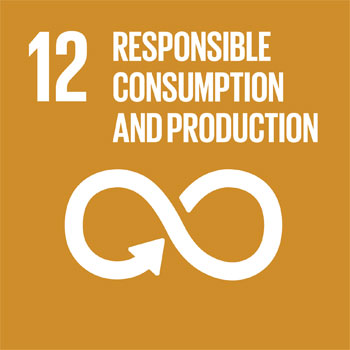
Reduce overall amount of waste produced on campus by 5% and increase the waste diversion rate by 10%.
 Action 1: Improve awareness of waste reduction/diversion programs through incentives, events and better advertising.
Action 1: Improve awareness of waste reduction/diversion programs through incentives, events and better advertising.
 Action 2: Improve operation of waste reduction/diversion programs through orientation and ongoing training and evaluation.
Action 2: Improve operation of waste reduction/diversion programs through orientation and ongoing training and evaluation.
 Action 3: Improve waste infrastructure across campus (e.g. standardized centralized waste stations, signage, moloks, etc.) to support improved waste diversion rates.
Action 3: Improve waste infrastructure across campus (e.g. standardized centralized waste stations, signage, moloks, etc.) to support improved waste diversion rates.
 Action 4: Expand reuse programs, for example surplus furniture, zero waste pop up shop, and residence move out program.
Action 4: Expand reuse programs, for example surplus furniture, zero waste pop up shop, and residence move out program.
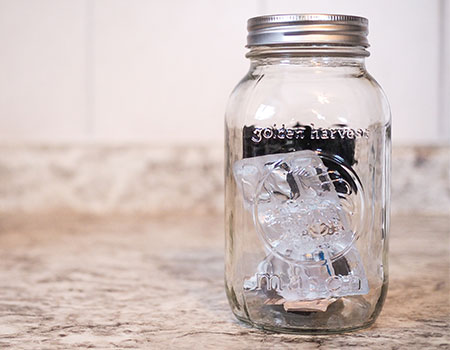 From March 9 to 12, the Sustainability Office hosted its second annual Zero Waste Week. Students and staff were invited to participate in the Zero Waste Challenge. For five days, participants used a 500-mL jar as their “garbage bin” to collect all their landfill waste. The purpose of the challenge was to encourage participants to start thinking about how much waste they produce in any given week. More than 100 students and seven Green Offices took part in the challenge. In the end, there were 19 prize winners between Brantford and Waterloo and three winning Green Offices that had the highest participation rate.
From March 9 to 12, the Sustainability Office hosted its second annual Zero Waste Week. Students and staff were invited to participate in the Zero Waste Challenge. For five days, participants used a 500-mL jar as their “garbage bin” to collect all their landfill waste. The purpose of the challenge was to encourage participants to start thinking about how much waste they produce in any given week. More than 100 students and seven Green Offices took part in the challenge. In the end, there were 19 prize winners between Brantford and Waterloo and three winning Green Offices that had the highest participation rate.
The first two days of Zero Waste Week were themed “Zero Waste 101" to provide participants with basic knowledge on living a more low-waste lifestyle. The third day of Zero Waste Week included a “Swap Don’t Shop” event in the Concourse, organized by Laurier’s Student Public Interest Research Group (LSPRIG). Students from residence donated over 20 bags of clothing, which was reduced by half during the swap event. On the final day of Zero Waste Week, the theme “lifestyle" was the focal point. A DIY personal care workshop and a sewing workshop were hosted by the Sustainability Office. Overall, Zero Waste Week was a huge success with 200 travel mugs given away, 11 community partners participating, and 500+ students engaged in activities held throughout the week.
Laurier’s 2019 waste audit showed that the Waterloo campus' waste diversion rate dropped for a second year in a row, from 49% (in 2018) to 43% (Figure 3), remaining below the Province's waste diversion target of 60%. A decreased diversion rate was also observed on the Brantford campus, from 73% to 69 % (Figure 4). As noted, in last year’s Annual Sustainability Report, China instituted a policy in 2018 banning the import of most plastics and mixed papers as a result of the overwhelming amount of contaminated materials they were receiving. This has resulted in North American waste haulers becoming much stricter in terms of the recyclable material and level of contamination they deem acceptable. As such, more focus must be placed on improving education amongst the Laurier community around avoiding contamination and proper sorting if we are to improve these numbers and meet our goals.
In recent years there has been an increased focus on waste reduction, as opposed to solely diversion, as a metric for successful waste management. The most recent waste audit illustrates that Laurier reduced the amount of waste generated on its campuses by approximately 8%, over 2019. This indicates that we are moving in the right direction with respect to increasing awareness and action on campus around reduction and reuse programs, discussed in the following sections.
To encourage the use of reusable mugs, the Sustainability Office partnered with Food Services in 2018 to increase the discount for all staff and students who bring their own reusable mug to any hot drink vendor on the Waterloo campus. The discount for the reusable mug program increased from 10 cents to 40 cents. An effort was made throughout 2019 to improve awareness of the program across campus through better signage and increasing coverage on social media. As a result of these efforts and increased awareness around zero waste living, the travel mug usage rate increased for a second year in a row at the majority of coffee vendors across campus (Figure 5). In 2019, this amounted to approximately 15,400 coffee cups avoided through the reusable mug program.
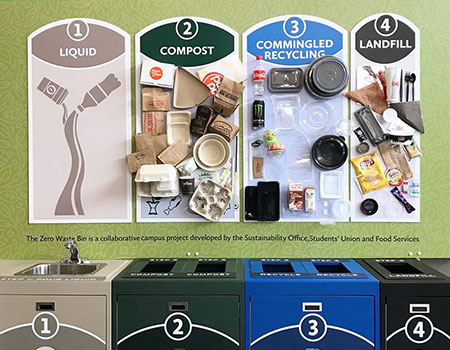 The Sustainability Office partnered with Laurier Food Services and the Students' Union to install its first Zero Waste Station in the Terrace Food Court. The novel waste station is comprised of brightly coloured bins, innovative signage and a liquid capture station. The liquid capture station was the first one installed on the campus, with the purpose of encouraging users to rinse dirty containers and dump liquid or ice before recycling cups or containers to eliminate contamination in the recycling stream. Throughout the year, volunteers including EcoHawks members, custodial staff, and Food Services staff were posted at the bins to help users properly sort their waste.
The Sustainability Office partnered with Laurier Food Services and the Students' Union to install its first Zero Waste Station in the Terrace Food Court. The novel waste station is comprised of brightly coloured bins, innovative signage and a liquid capture station. The liquid capture station was the first one installed on the campus, with the purpose of encouraging users to rinse dirty containers and dump liquid or ice before recycling cups or containers to eliminate contamination in the recycling stream. Throughout the year, volunteers including EcoHawks members, custodial staff, and Food Services staff were posted at the bins to help users properly sort their waste.
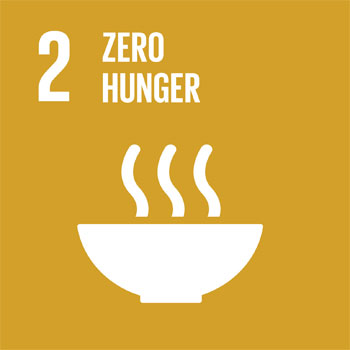
Improve sustainable food systems in formal and informal campus services.
 Action 1: Work with on-campus food service providers on common initiatives such as increasing local food purchasing/percentage, focusing on plant-based meals and reducing food waste and packaging.
Action 1: Work with on-campus food service providers on common initiatives such as increasing local food purchasing/percentage, focusing on plant-based meals and reducing food waste and packaging.
 Action 2: Increase the number of ways students and staff can access and purchase local foods.
Action 2: Increase the number of ways students and staff can access and purchase local foods.
 Action 3: Establish a formal program around our edible tree and shrub plantation.
Action 3: Establish a formal program around our edible tree and shrub plantation.
Laurier renewed its Fair Trade Campus designation again in 2019 with the help of campus partners including Food Services, Retail Services, Printing and Distribution, Veritas, and the Students' Union. This past school year, the Food Services team introduced a new Fairtrade chocolate on campus – Divine Chocolates – to increase the availability of Fairtrade products. In 2020, the Fair Trade Campus Committee will be working on policies and projects to move up to a Silver Designation. This will require cross-collaboration between several campus partners to enhance Laurier’s commitment to providing ethical, sustainable food on campus.
During the 2019 growing season, a wide variety of organic vegetables were grown in the Northdale Community Garden (located at 66 Hickory Street) including kale, swiss chard, cucumbers, tomatoes, peppers and watermelons. To distribute the produce to the Laurier community and beyond, market stands were set up at Veritas Café on campus and Seven Shores Café in uptown Waterloo.
A grant from the United Nations Association in Canada provided funding for two Laurier student employees who were tasked with overseeing daily operations in the garden throughout the summer.
Pick-your-own-produce days and other events, organized by the Laurier Students' Public Interest Research Group (LSPIRG), were held at the garden throughout the growing season and into the fall semester to allow students to participate in garden-related activities.

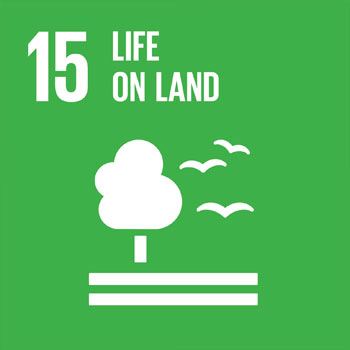
Achieve a system of sustainable, open and natural spaces throughout campus, prioritizing pedestrians and a positive, thriving relationship between the built and natural environment.
 Action 1: Formalize and publish sustainable grounds design standards that support native and low-maintenance plants and wild pollinating species.
Action 1: Formalize and publish sustainable grounds design standards that support native and low-maintenance plants and wild pollinating species.
 Action 2: Prioritize planting and maintenance of pollinator friendly plants and habitat to support wild bee populations, particularly those considered vulnerable or at risk.
Action 2: Prioritize planting and maintenance of pollinator friendly plants and habitat to support wild bee populations, particularly those considered vulnerable or at risk.
 Action 3: Prioritize creation and maintenance of green spaces, pedestrian spaces and linages, including walkways and gathering are.
Action 3: Prioritize creation and maintenance of green spaces, pedestrian spaces and linages, including walkways and gathering are.
 Action 4: Develop and partner with programs that support healthy ecosystems and human wellness, such as Bee City Canada, Greenbelt Fund, and horticultural therapy.
Action 4: Develop and partner with programs that support healthy ecosystems and human wellness, such as Bee City Canada, Greenbelt Fund, and horticultural therapy.
The Planning, Design, and Construction (PDC) team at Laurier is in the process of finalizing a new Landscape Master Plan for the Waterloo campus. This plan will incorporate sustainability principles such as Low Impact Design to storm water management and planting plants with ecological value such as those that are drought tolerant, provide habitat and wildlife value, and support pollinators. As previously mentioned, the University has undertaken the development of a Parking Master Plan that will be launched in late 2020. It aligns with the Landscape Master Plan and includes plans to increase green space and promote safer pedestrian walkways on campus.
Laurier’s Waterloo campus received its “Bee Campus” designation by Bee City Canada. Laurier became the ninth post-secondary campus in Canada and the first in Waterloo Region to be recognized as having a dedicated commitment to helping protect and support pollinators. Two key student-led projects contributed to Laurier achieving this designation. The first project was led by PolliNation, a social enterprise focused on educational initiatives around pollinators. The other project was the construction of a pollinator spiral in the Northdale Community Garden that provides dedicated habitat for ground-nesting bees and other insects.
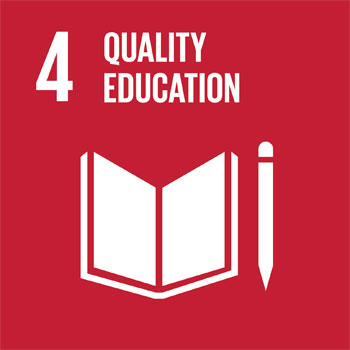
Improve sustainability knowledge and skills in Laurier students by providing sustainability resources and opportunities to Laurier’s teaching community and to students directly.
 Action 1: Formalize and publish sustainable grounds design standards that support native and low-maintenance plants and wild pollinating species.
Action 1: Formalize and publish sustainable grounds design standards that support native and low-maintenance plants and wild pollinating species.
 Action 2: Expand environment and sustainability-related academic programs offered at Laurier through focused programming at Milton campus.
Action 2: Expand environment and sustainability-related academic programs offered at Laurier through focused programming at Milton campus.
 Action 3: Connect students to internal and external learning opportunities through class and other partnerships, Sustainability Office events, and communications.
Action 3: Connect students to internal and external learning opportunities through class and other partnerships, Sustainability Office events, and communications.
 Action 4: Partner with the Office of Indigenous Initiatives on sustainability initiatives to provide learning opportunities for students on topics such as land based programs.
Action 4: Partner with the Office of Indigenous Initiatives on sustainability initiatives to provide learning opportunities for students on topics such as land based programs.
Every year, Sustainability Office staff respond to requests from faculty to host guest lectures in their classes. This past academic year, staff gave 10 guest lectures in a variety of courses ranging from first year to graduate level. The office provided two lectures to Graduate students in the Sustainable Business Management Program at Conestoga College Brantford Campus to share Laurier’s progress in sustainability.
Beyond lectures, the Sustainability Office held workshops during Zero Waste Week and throughout the year to provide students with the opportunity to enhance their sustainability knowledge outside the classroom. One workshop brought in the Meal Exchange team to Veritas to engage students in starting a Good Food for all Campaign on campus. This workshop gave students an overview of the history of “good food” ranging from organic food to food labelling schemes.
The Lazaridis School of Business and Economics hosted the annual IKEA Sustainability Challenge and asked 2nd year students to develop creative and sustainable solutions for IKEA. The Sustainability Office has continued its partnership with the School and was on the judging panel for the first round of the competition. This year, 38 teams participated and had only two weeks to solve the challenge. The five finalist teams were IKEA Design Space, IKEA Cube, IKEA Connect, IKEA Visualization Studio and Mobile IKEA. Team IKEA Connect took home first place with their proposal to highlight the environmental impact of purchases for consumers with a carbon footprint tracker and then offer ideas of how consumers can adopt more sustainable practices. Congratulations team IKEA Connect!
The Sustainability Office worked with fourth year students in the Capstone Course in Social Entrepreneurship (SE400) to support the development of their social ventures. A sample of some of the student-led social ventures is included below:
Community Cooking Collective aims to address the issue of food insecurity in Waterloo Region by offering in-person cooking classes to marginalized groups to help them learn how to cook affordable and nutritious recipes. It also plans to launch a line of recipe books. (Led by Eric Hovland).
Modern Park Experience (MPX) is a social enterprise that is revolutionizing the park and protected area space through creating unique and user-friendly websites for parks that: provide park information and updates in a more engaging way, create accessible environmental education opportunities, promote environmental stewardship, and enable the community to digitally donate to their local parks (Led by Ethan Chamish).
A Meal a Day is a social venture that aims to overcome food insecurity amongst students by developing innovative partnerships with restaurants and food suppliers to help Laurier students gain better access to nutritious and affordable food on and off campus (Led by Ade Moriam Tijani).

Improve collaboration between the Sustainability Office and Laurier research programs that focus on the environment and sustainability.
 Action 1: Use Sustainability Office communications to profile research and individuals achieving excellence in academics at Laurier within the field of sustainability.
Action 1: Use Sustainability Office communications to profile research and individuals achieving excellence in academics at Laurier within the field of sustainability.
 Action 2: Work with Laurier researchers to support Sustainability Office initiatives/strategies/ programs and explore opportunities to use campus as a ‘Living Lab’, particularly through environmental science and engineering programs at the new Milton campus.
Action 2: Work with Laurier researchers to support Sustainability Office initiatives/strategies/ programs and explore opportunities to use campus as a ‘Living Lab’, particularly through environmental science and engineering programs at the new Milton campus.
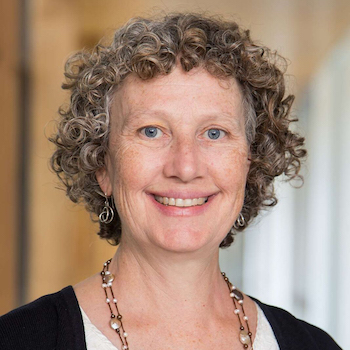
In 2019, Dr. Alison Blay-Palmer was named United Nations Educational, Scientific and Cultural Organization (UNESCO) Chair in Food, Biodiversity and Sustainability Studies. Led in Canada by the Canadian Commission for UNESCO, the prestigious UNESCO Chairs program promotes international inter-university cooperation in key priority areas for the agency. It includes relatively few Canadian English-language universities, making Blay-Palmer only the fourth Ontario scholar to participate in the program. As a UNESCO chairholder, Blay-Palmer plans to continue to work with the Laurier Centre for Sustainable Food Systems (LCSFS) and the Food: Locally Embedded, Globally Engaged (FLEdGE) to examine food sustainability from biophysical, cultural and economic points of view.
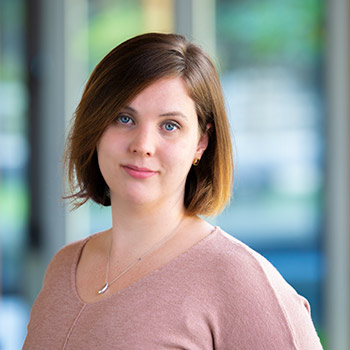
Dr. Audra Mitchell (Political Science) was newly appointed as the Canada Research Chair in Global Political Ecology (Tier 2). Her research rethinks assumptions about global patterns of plant and animal extinctions, reframing them as direct results of colonialism, extractive capitalism, environmental racism and other systemic issues. In reframing extinctions and species endangerment as political as well as ecological, Mitchell is collaborating with Indigenous researchers, knowledge keepers, and community leaders on the concurrent goals of dismantling structural violence and combatting plant and animal extinctions.
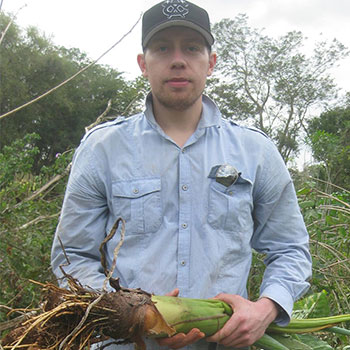
Dr. Miguel Sioui (Geography and Environmental Studies) is helping bridge the gap between Indigenous knowledge and the knowledge of western-trained scientists. Sioui, an expert on Indigenous knowledge and environmental management, has worked with communities from Mexico to the Northwest Territories to understand their land and water management strategies. He was recently awarded the SSHRC Insight Grant (2019-2024) for his research project: Advancing Indigenous Environmental Stewardship. Building on existing relationships to work closely with Dehcho First Nations, NWT, and James Bay Cree, northern Québec, the research will undertake a major inter-regional comparative effort to co-generate knowledge about best practices and key hurdles for Indigenous governments seeking to assert their roles as environmental stewards and resource managers.
 Action 1: Seek executive leadership from deans to support and drive partnerships with faculty and student-focused programs as well as clubs and research centres to provide experiential learning opportunities for students.
Action 1: Seek executive leadership from deans to support and drive partnerships with faculty and student-focused programs as well as clubs and research centres to provide experiential learning opportunities for students.
 Action 2: Develop outreach activities around the Sustainable Hawk Fund around opportunities for entrepreneurship and social innovation.
Action 2: Develop outreach activities around the Sustainable Hawk Fund around opportunities for entrepreneurship and social innovation.
Each year, the Sustainability Office dedicates $30,000 through the Sustainable Hawk Fund program to fund project ideas from the Laurier community. The projects must be focused on social or environmental sustainability and demonstrate that they will positively benefit the Laurier community. After receiving many excellent applications this year, the following six projects were selected:
“Cut the Crap” Photo Installation (Led by Kai Reimer-Watts) | Illustrations from artist Pooja Dhingra's series "Cut the Crap" promoting individual action will be put up in a new Sustainability Corridor on-campus.
Sustainable Menstruation Workshops (Led by Brooke Dietrich) | Workshops to educate and provide alternatives to traditional menstrual products that are environmentally wasteful. The workshop invites industry experts/representatives to discuss alternatives and destigmatize menstruation.
HiRide (Led by Akshat Soni) | A carpooling platform that was created for postsecondary students and young professionals. For every five carpools they facilitate, they plan to plant a tree in Waterloo.
EarthSuds (Led by Marissa Vettoretti) | A social enterprise that aims to sell a substitute for travel toiletries that is free from plastic packaging.
Battery Recycling Drums (Led by Madeline McInnis) | Implement convenient battery recycling stations on campus for students to have a place to safely dispose of batteries.
LastXX Apparel (Led by Lauren Barnes) | Last20 Apparel integrates PET plastics into fibres, which is its sustainable clothing brand.
People all over the world were called to stand in solidarity on Sept. 27 for the Global Climate Strike. In both Waterloo and Brantford, local strikes took place. At Laurier, a series of events and the painting of a colourful mural focused on climate action took place through Global Climate Strike Week. On the day of the Global Climate Strike (also known as Fridays for Future) over a hundred students, professors and staff gathered in the Quad and marched together to Waterloo Town Square to join over 4,000 other people participating in the Global Climate Strike Waterloo Region.
To mark the Global Climate Strike in September, a Climate Action Mural was painted on a wall along the walkway leading to the Fred Nichols Campus Centre. The colourful mural, painted by local artist Pamela Rojas with help from Laurier students, includes local landmarks, portraits of local and world-renowned change makers and the message “Climate is Life,” to underscore the importance of the climate to life on Earth.
Kai Reimer-Watts, a Laurier PhD student in the Community Psychology program, led of the mural project who worked in consultation with a wide range of people at Laurier and in the wider community. The mural was supported by campus and community partners, including the Laurier Sustainability Office, Wilfrid Laurier University Students’ Union, Graduate Enhancement Fund, the City of Kitchener’s Community Grant, and additional in-kind support from individuals and organizations in the community.
The mural pays tribute to Laurier’s location on the traditional territories of the Anishinaabe, Neutral and Haudenosaunee peoples and our shared connection to, and recognition of, the life-giving Grand River.
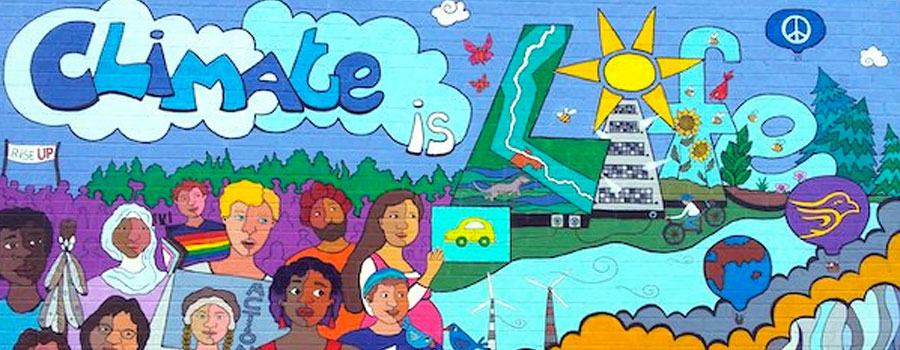

Create and update standards and toolkits to embed sustainability in planning, design, and construction (PDC), facilities operations and Human Resources onboarding activities.
 Action 1: Embed sustainability criteria in contracts and procedures for project managers and facilities operators to ensure that sustainability criteria are incorporated within projects and operations.
Action 1: Embed sustainability criteria in contracts and procedures for project managers and facilities operators to ensure that sustainability criteria are incorporated within projects and operations.
 Action 2: Include sustainability-related information and ongoing training in existing standards, practices, and programs within the preexisting staff sustainability certificate and new hire orientation.
Action 2: Include sustainability-related information and ongoing training in existing standards, practices, and programs within the preexisting staff sustainability certificate and new hire orientation.
 Action 3: Advise on existing and emerging external sustainability-related legislation, funding opportunities, and other mandates.
Action 3: Advise on existing and emerging external sustainability-related legislation, funding opportunities, and other mandates.
The Sustainability Office launched its own Green Office (GO) Program in November 2019. GO is a staff engagement program for offices on our campuses that want to enhance their office sustainability practices and culture. The program enables staff to take leadership on sustainability measures in their offices to contribute to a thriving, sustainable campus. Offices track their progress in nine different categories of sustainability and then get certified as a gold, silver, or bronze office.
As of April 2020, all campuses were active in the program. The Sustainability Office was overwhelmed with positive response and interest in the program, which led to maximum registrations for three information sessions for the GO Program.
# of Green Offices
# of Ambassadors
# of Staff Participating
Launched in 2017, Laurier offers a Certificate in Sustainability for faculty and staff that participate in our “Lunch and Learn” workshop series. The goal of the program is to increase employee literacy and awareness on global-to-local sustainability topics as well as to encourage behavior/culture change through increased use of on-campus programs and services.
Since 2017, 23 staff have received a Sustainability Certificate by completing at least five workshops. This past year the Sustainability Office held workshops on zero waste cooking, pollinator gardens, sustainable transportation, Indigenous reconciliation, and the Green Office Program. Overall, the program saw 117 registrations for workshops held during the 2019/20 school year, and the Office aims to surpass this number in 2020.
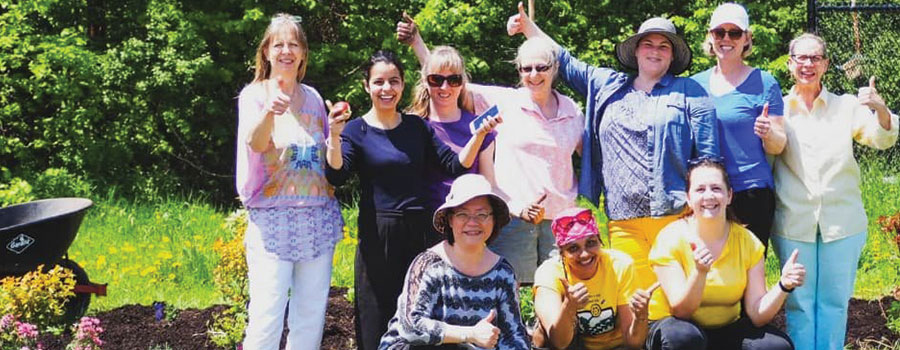
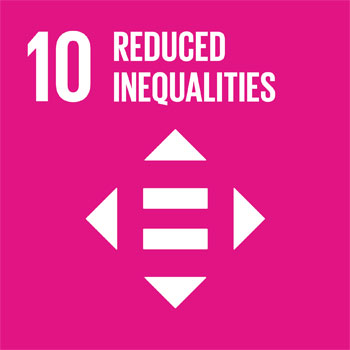
Support the mission and vision of leaders across campus with strong linkages to sustainability (e.g. Office of Indigenous Initiatives and Indigenous Student Centre (ISC)).
 Action 1: Create a formal communications network between stakeholders to improve the reach of shared messages, initiatives and events.
Action 1: Create a formal communications network between stakeholders to improve the reach of shared messages, initiatives and events.
 Action 2: Include ISC and Laurier’s diversity, equity, and inclusion goals as themes in existing and new sustainability programming and services offerings, i.e. Staff Sustainability Certificate.
Action 2: Include ISC and Laurier’s diversity, equity, and inclusion goals as themes in existing and new sustainability programming and services offerings, i.e. Staff Sustainability Certificate.
 Action 3: Have Sustainability staff and students attend ISC and diversity, equity, and inclusion training, educational sessions and read guidebook; include ISC and Laurier’s diversity, equity, and inclusion resources in Sustainability office resource materials.
Action 3: Have Sustainability staff and students attend ISC and diversity, equity, and inclusion training, educational sessions and read guidebook; include ISC and Laurier’s diversity, equity, and inclusion resources in Sustainability office resource materials.
 Action 4: Recruit diversity, equity, and inclusion champions and ISC representatives for Laurier’s Sustainable Campus Committee and include the representatives in screening for Sustainable Hawk Fund Projects.
Action 4: Recruit diversity, equity, and inclusion champions and ISC representatives for Laurier’s Sustainable Campus Committee and include the representatives in screening for Sustainable Hawk Fund Projects.
 Action 5: Partner with relevant groups and offices to support social sustainability-related workshops.
Action 5: Partner with relevant groups and offices to support social sustainability-related workshops.
Over the past few years, on our campuses, momentum has been building over the menstrual equity movement. The Sustainability Office has been involved in promoting and supporting this campaign alongside students and our campus partners. In 2020, LSPIRG launched Menstrual Equity March to educate and engage the Laurier Community. Some of the activities the Sustainability Office has been a part of include providing Sustainable Hawk Funding towards educational workshops and supporting the need for access to menstrual products in all bathrooms on the Waterloo Campus.

Improve cultural understanding and acceptance on campus by integrating diverse world views and histories.
 Action 1: Integrate Calls to Action from the Truth and Reconciliation Commission Report into projects and events to work towards improving a more welcoming campus for Indigenous students, staff and faculty.
Action 1: Integrate Calls to Action from the Truth and Reconciliation Commission Report into projects and events to work towards improving a more welcoming campus for Indigenous students, staff and faculty.
 Action 2: Integrate indigenous principles and customs into managing Laurier’s ecological and social systems, particularly in terms of connection to the land and ecosystem heal.
Action 2: Integrate indigenous principles and customs into managing Laurier’s ecological and social systems, particularly in terms of connection to the land and ecosystem heal.
To provide educational and engaging opportunities under social sustainability, the Sustainability Office partnered with Laurier’s Indigenous Curriculum Specialist and the Indigenous Student Centre to host a KAIROS Blanket Exercise for staff and students. The KAIROS Blanket Exercise is an interactive learning experience that teaches the Indigenous rights history that is rarely taught. Developed in response to the 1996 Report of the Royal Commission on Aboriginal Peoples – which recommended education on Canadian Indigenous history as one of the key steps to reconciliation, the Blanket Exercise covered over 500 years of history in the workshop. With Erin Hodson and Emily Daniel facilitating the exercise, participants took on the roles of Indigenous Peoples in Canada. Standing on blankets that represent the land, participants walked through time starting at pre-contact moving through treaty making, colonization and resistance, finishing in today’s time. The Sustainability Office is looking forward to building upon its existing relationship with the Indigenous Student Centre and Laurier's Indigenous Curriculum Specialist in the coming years.

Improve the accessibility of sustainability services to people with disabilities.
 Action 1: Encourage projects that confront accessibility issues through the Sustainable Hawk Fund.
Action 1: Encourage projects that confront accessibility issues through the Sustainable Hawk Fund.
 Action 2: Include the Accessibility for Ontarians with Disabilities Act (AODA) in the planning stages of sustainability office projects.
Action 2: Include the Accessibility for Ontarians with Disabilities Act (AODA) in the planning stages of sustainability office projects.
This year, the Sustainability Office revamped the application phase for individuals or teams applying to the Sustainable Hawk Fund. One aspect encouraged applicants to review the Sustainability Action Plan and identify which of those goals apply to their proposed projects. This includes goals 12, 13, and 14 that fall under Diversity, Equity, Inclusion. In the next funding cycle, the Office will incorporate additional questions that ask applicants whether their project addresses accessibility issues or includes actions in the Truth and Reconciliation Commission Report.

Provide opportunties (particularly for students) to access services and experiences at affordable rates, including at no cost.
 Action 1: Continue to offer and promote programs and events at no cost, such as Sustainable Hawk Fund and Sustainable Waterloo Region educational workshops.
Action 1: Continue to offer and promote programs and events at no cost, such as Sustainable Hawk Fund and Sustainable Waterloo Region educational workshops.
 Action 2: Increase availability of reused and repurposed materials and items on campus, such as surplus furniture and gently used IT equipment, through a reuse program.
Action 2: Increase availability of reused and repurposed materials and items on campus, such as surplus furniture and gently used IT equipment, through a reuse program.
 Action 3: Following collection of items during Move-Out Program, redistribute furniture, household, and clothing items at low-cost or no cost for students through a Free Store.
Action 3: Following collection of items during Move-Out Program, redistribute furniture, household, and clothing items at low-cost or no cost for students through a Free Store.
This year, the Sustainability Office revamped the application phase for individuals or teams applying The Sustainability Office was hard at work over the Fall and Winter terms preparing for a permanent Freestore to be available on our Waterloo Campus by Zero Waste Week. The team met its goal and was able to renovate and set-up the space by the end of the Winter term.
In partnership with Martin Luther University College, the Sustainability Office will run a permanent Freestore space at 232 King St (Room KB02R) year-round. This project meets our Action Plan’s affordability and waste goals, while also increasing the visibility of the Sustainability Office. The first round of donations for the Freestore saw 300 pounds of used items diverted from the landfill. As such, a diversion goal of 2000 pounds was set for the end of the 2020. The store will have essential household items, decorations, seasonal items, but will not have large furniture or clothing available when the store launches. This is an ongoing program and the Sustainability Office is looking forward to seeing where this project goes in 2020/21.
Freestore pop-up
Planning for permanent Freestore begins
Secured location at 232 King St.
Space renovations begin
Completion of Freestore
Anticipated Grand Opening
The Sustainability Office’s goal is to provide students with the opportunity to participate in programs and projects at no cost or a very low cost. In the 2019-2020 academic school year, the Sustainability Office held campaigns, workshops, hosted booths at events, and more. Together, these initiatives promote sustainability action on campus and engage students in shifting their behaviours to more sustainable actions such as waste diversion and reduction. Here is a summary of the student-focused engagements:
Campaigns
Workshops
Booths
Events

Implement recommendations made by the Responsible Investment Working Group (RIWG) to support meaningful action on climate change while meeting fiduciary duties of the Board of Governors.
 Action 1: Work with responsible parties to enhance Environmental, Social, and Governance (ESG) risk management strategies through mechanisms outlined in RIWG report such as revising relevant investment policies, procedures, and terms of reference to include ESG factors into decision making.
Action 1: Work with responsible parties to enhance Environmental, Social, and Governance (ESG) risk management strategies through mechanisms outlined in RIWG report such as revising relevant investment policies, procedures, and terms of reference to include ESG factors into decision making.
 Action 2: Work with Financial Resources team to develop a fossil free/impact investing endowment fund that is available to donors.
Action 2: Work with Financial Resources team to develop a fossil free/impact investing endowment fund that is available to donors.
In 2017, the Board of Governors approved six recommendations related to responsible investing for Laurier’s investment funds. Since then, the Working Group reconvened in 2019 and has made strides towards meeting its objectives related to responsible investing. Financial Resources staff, the Investment Oversight sub-committee, and the Joint F&I and Pension committee received training on Environmental, Social, and Governance (ESG), and impact and socially responsible investing. Additionally, in order to collaborate with organizations on responsible investing, Laurier became a member of the Responsible Investment Association. These efforts coupled with activities in the coming years will help to enhance Laurier’s responsible investing practices.
Overall, 2019/2020 was a very busy and successful academic year for the Sustainability Office and our partners across Laurier campuses. We are particularly proud of achieving a STARS Gold rating from the Association of the Advancement of Sustainability in Higher Education (AASHE). In the coming 2020/2021 academic year the Sustainability Office looks forward to: